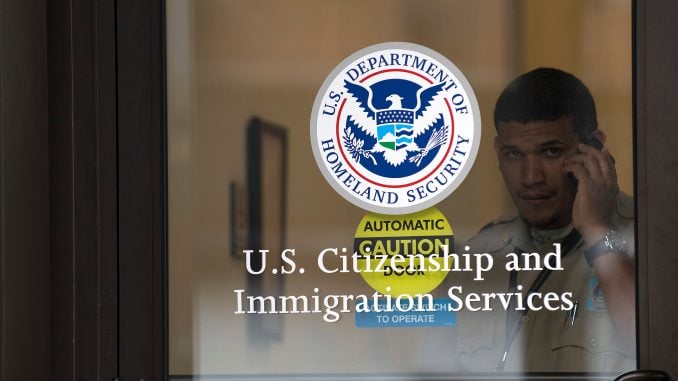
The afternoon before President Donald Trump’s speech to Congress, Twitter watchers were treated to a flurry of tweets that the president was going to endorse something very much like the “comprehensive” immigration bills that foundered in Congress in 2006, 2007, and 2013.That was wishful thinking by people discounting Trump’s constant promises and stuck in the mindset that spawned the “comprehensive” legislation, which in Trump’s view would have legalized the presence of undocumented immigrants immediately in return for promises, never to be fulfilled, of tough enforcement later.In the House chamber, Trump made that clear. He began not by calling for new legislation the usual subject matter of such addresses but by describing what he is doing and what is happening now. His unstated subtext: Facts on the ground have made the “comprehensive” model irrelevant.Those facts are being affected by the orders he has issued, orders requiring stricter enforcement of current laws that previous administrations didn’t choose to enforce.The Trump Department of Homeland Security widened considerably the number of criminal offenses for which undocumented immigrants can be deported. It abolished the Obama administration catch-and-release procedure. It ended the procedure of sending unaccompanied asylum-claiming teens to distant towns with summonses seldom obeyed to appear for hearings later.These changes are bound to have the practical effect of deterring illegal border crossings and altering the plans of people here illegally. Even those who have never had a brush with law enforcement may calculate that relatively innocent behavior e.g., having someone crash into your car after you’ve had a couple of beers could trigger a sudden deportation.The result is likely to be attrition of the undocumented population, or what Mitt Romney called self-deportation. That’s what apparently has happened in Arizona since the state began requiring E-Verify checks on job applicants in 2008.The Trump order specifically excluded “dreamers” people brought here illegally as children from threat of deportation, effectively continuing Obama’s 2012 Deferred Action for Childhood Arrivals exception. That’s widely popular; Americans don’t like punishing children for the sins of their parents.Trump has long said he’s not eager to deport dreamers, and perhaps he’ll offer them legal status or even citizenship in any immigration legislation. If so, it’ll be a bargaining chip for “comprehensive”-supporting Democrats who’ve sought legal status for almost all immigrants. In return, Trump would seek what he called for when he got around to talking about possible legislation in his speech: “switching away from this current system of lower-skilled immigration and instead adopting a merit-based system.”This was the 10th point in Trump’s 10-point plan in his Aug. 31 speech in Phoenix, delivered just after he met with Mexican President Enrique Pena Nieto in Mexico City. It’s the major feature of legislation recently introduced by Republican Sens. Tom Cotton and David Perdue.It’s based, as Trump noted Tuesday, on the point systems of the immigration laws of Canada and Australia. In those countries, immigrants have incomes and education levels that are above average, not below average as they are here.In seeking a shift to high-skilled immigration, Trump is moving with the grain. Net migration to the U.S. from Mexico, which the Pew Research Center says has produced the lowest-skilled immigrants on average, fell to zero between 2007 and 2014 and has not bounced back to anywhere close to previous levels.Meanwhile, immigration from Asia has been increasing. China and India together have accounted for more immigrants than Mexico since at least 2012. Asian immigrants are not all high-skilled. But their education and skill levels are, on average, significantly higher than those from south of the border.So America is already moving toward an inflow of high-skilled immigrants, and requiring E-Verify for job applicants and establishing a visa-tracking system which might require legislation but might be partly accomplished by regulation would move us further toward a higher-skilled and legally sanctioned immigrant population.That’d be a positive result, whatever you think of Trump’s “great, great wall.”Michael Barone is a resident fellow at the American Enterprise Institute and longtime co-author of The Almanac of American Politics.



